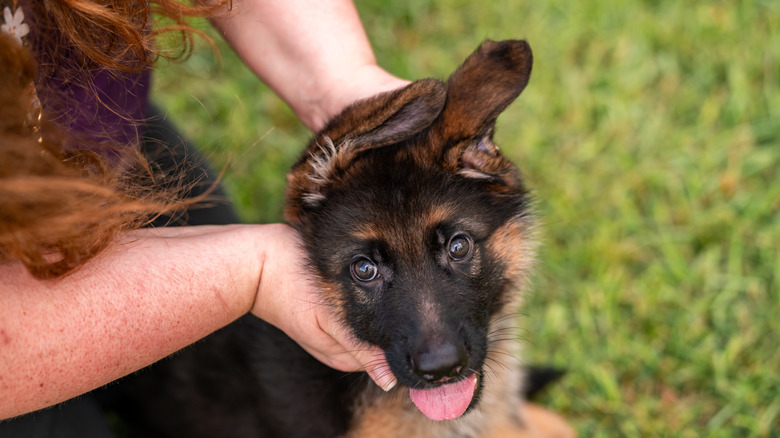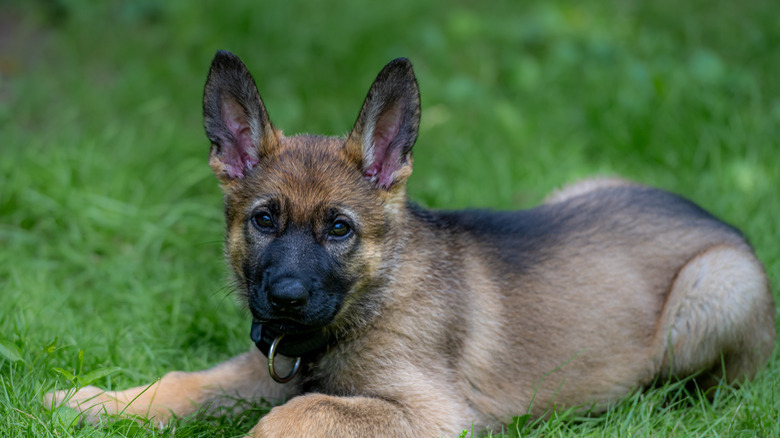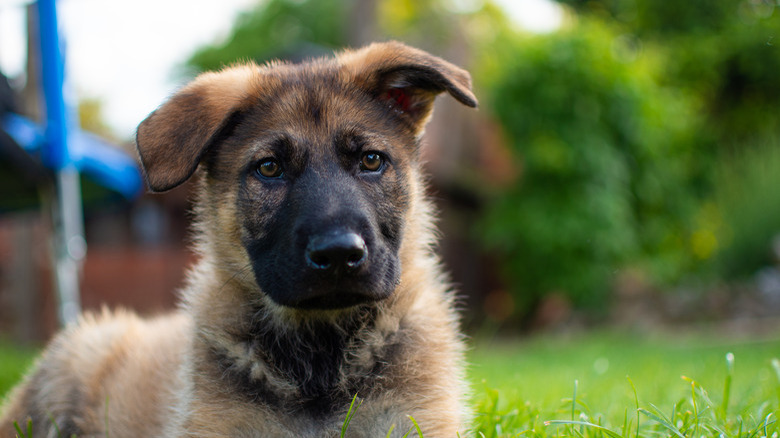How To Take Care Of Newborn German Shepherd Puppies
Newborn German shepherd puppies are fragile and arrive in the world without teeth or the ability to hear or see. They instinctively seek the heat from their mother's body and instinctively know to suckle. Fortunately, most mothers also know what to do to care for the pups. However, there are some things you can do to help the mom and ensure that the just-born German shepherd puppies get the best start in life.
Prepare for puppy birth
The gestation period for German shepherds is about 64 days, slightly longer than the gestation of smaller breeds. The size of the litter typically ranges from two to 14 puppies. If your German shepherd has a large litter of more than four pups, she may need more help from you to keep them safe and healthy, especially if she is a first-time mother.
As the due date approaches, you may notice nesting behavior in the mother. Make sure to have a whelping box set up in a quiet, warm location and stock it with blankets or towels. Since newborn pups cannot regulate their body temperature, make sure that the room is warm and consider a heat lamp to put over part of the whelping box. During the first week of life, keep the room at 86 to 90 degrees Fahrenheit.
Check puppies at birth
Check the German shepherd newborn babies as they are born to make sure they are breathing. The mother will usually cut the umbilical cord with her teeth and clean each puppy. If she is too tired to complete the task, remove the sac from around the puppy and clear her nose and mouth so she can breathe. Cut the umbilical cord with scissors or by tying it off with thread, leaving about 1 inch attached to the puppy. Finally, clean and dry each pup with a clean towel.
Newborn German shepherd care
During their first weeks of life, newborn German shepherd puppies do little but sleep and eat. Making sure that the puppies nurse right away and continue nursing is critical to their health and survival. Make sure puppies start nursing as soon as possible. Initially, the mother produces colostrum, which contains antibodies critical to help build the puppy's immune system.
Weight the puppies regularly to ensure they are gaining weight. Newborn puppies usually weigh between 0.8 and 1.3 pounds. Weigh them again at 12 hours, 24 hours, two days, three days, five days, and seven days. You should see gradual weight gain, and by the end of the week, puppies should weigh between 1.6 and 2.1 pounds.
If a puppy isn't gaining weight, isn't nursing, or appears dehydrated or in distress, contact your veterinarian. Keep an eye on the mother as well. In some cases, she may develop mastitis, which can be extremely painful for the mother and can prevent puppies from getting the milk they need. Be sure to get her to the vet if she develops mastitis and feed puppies a puppy milk replacement by hand until she is able to nurse the pups again.
Cleaning and hygiene needs
During the first two weeks of life, puppies cannot eliminate without stimulation. The mother generally provides this by licking the pups, but if she is failing to do so, you may have to take on this task. Use a damp cloth to gently massage the anal area of the puppy. Make sure to keep the puppies' bed clean. This includes changing newspapers and washing bedding regularly.


